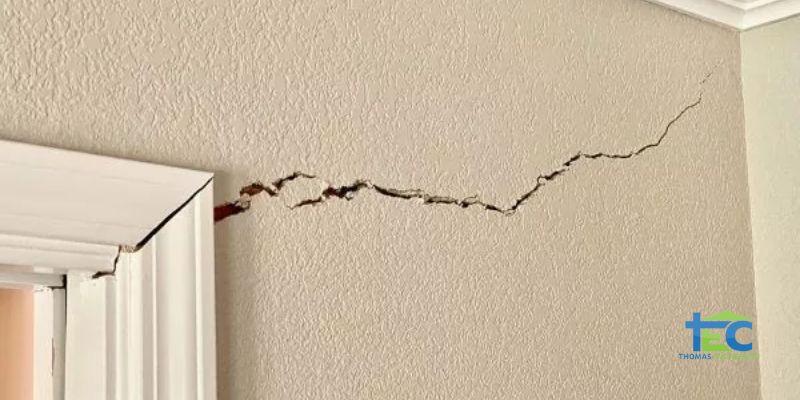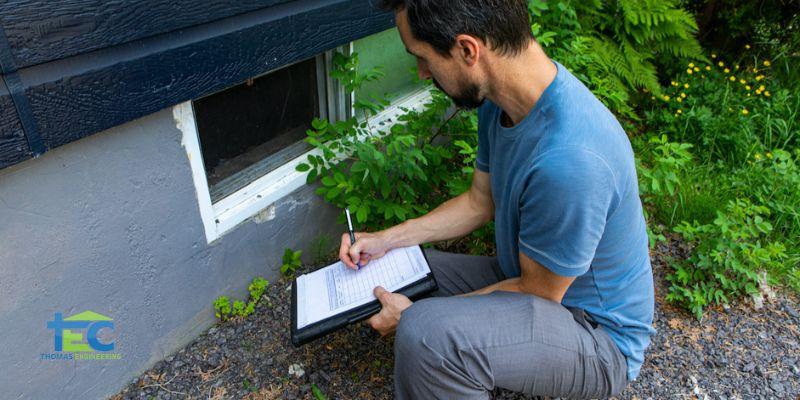
Take a thorough walk around both the interior and exterior of your home or a potential property you are considering purchasing. Are you able to identify any of the indicators listed below?
1. Cracks are present in the interior walls, brick fireplace wall, or between the exterior bricks.
2. Nails that have become dislodged from the plaster or sheetrock.
3. Wrinkles or tears in the tape and bed seams of sheetrock.
4. Doors and windows that fail to fully close or function correctly.
5. Roof leaks, even if the roofing materials are still in good condition.
6. Cracks in the floor tile or foundation.
These issues may extend beyond mere aesthetic inconveniences. They could indicate underlying foundation problems that exist right beneath your feet.
If you suspect foundation issues, it is advisable to engage the expertise of a reputable structural engineer / foundation engineer to accurately diagnose the situation. However, how do you go about selecting the ideal foundation expert who can provide you with the answers you require?
To help you select the ideal foundation engineer, here’s a checklist to consider:
1. Conduct a Background Check

- Start by researching how long the company has been involved in foundation work.
- Visit their business location to assess their professionalism and organization.
- Read the online reviews on the company’s website. Are the old quoted reviews, or current and date-stamped reviews?
- Inquire about their level of expertise and previous project experience.
- Find out if they are affiliated with any industry groups or professional associations.
- Ask about their insurance coverage, including liability insurance.
2. Credentials
Ensure you verify the credentials of any foundation expert you are considering. This can easily be confirmed on the Texas Board of Professional Engineer’s website. Given that your home, or the house you are purchasing, is not only an investment but also a cherished part of your life, it is crucial to verify their qualifications to handle the required job.
3. Skills

During your conversations with an engineer or a company, inquire about their expertise in various areas:
- Geology
- Structural Engineering
- Groundwater Conditions
- Mechanics of Soil and Rock
- Analyzing Drainage and Water Problems
While you may not immediately grasp the technical aspects of the foundation engineer’s explanations, if they can effectively communicate the concepts in simple language and outline the potential courses of action, then you have likely found your expert. Why are these areas of expertise relevant? They are relevant because they all impact the structural performance of your home.
4. References:
To potentially save more and gain valuable insights, request a list of references or referrals from the prospective structural engineer. Take the initiative to contact these references and ask them relevant questions. By evaluating their responses, you can make informed decisions. Don’t forget to consider the posted reviews on the engineering company’s website and request to speak specifically to those reviewers. Your research skills will prove invaluable during this process.
Don’t Hesitate to Ask Questions: As a homeowner or real estate purchaser, it is your right to ask questions. Don’t hesitate to do so. Protect your interests and ensure you gather all the necessary information.






